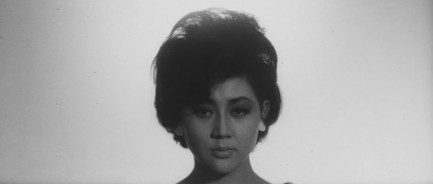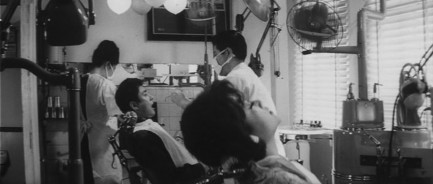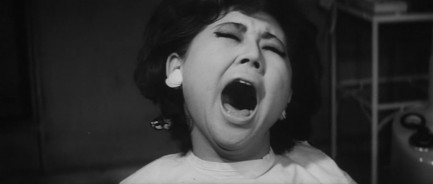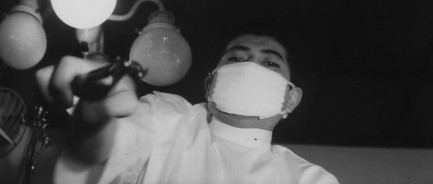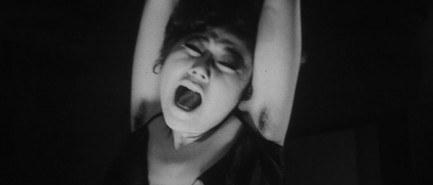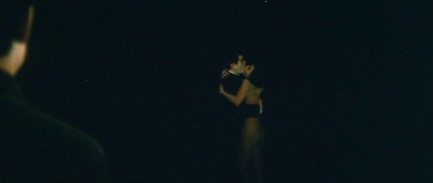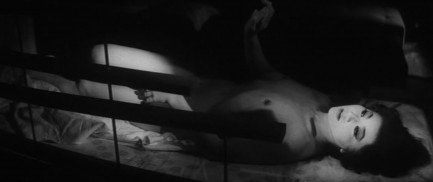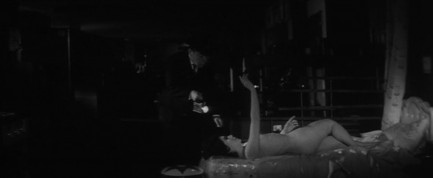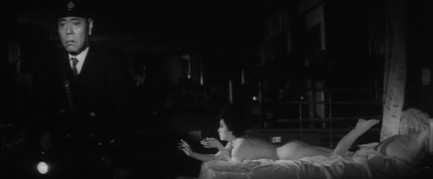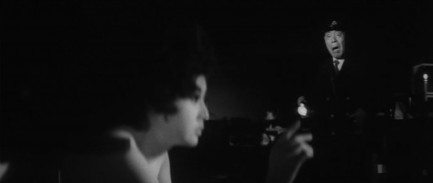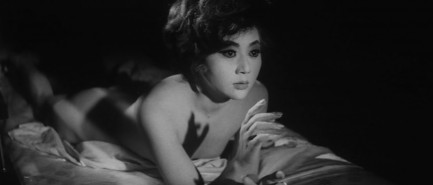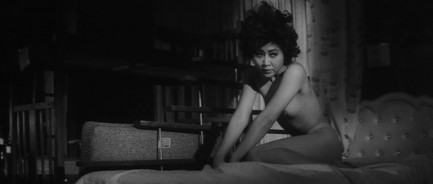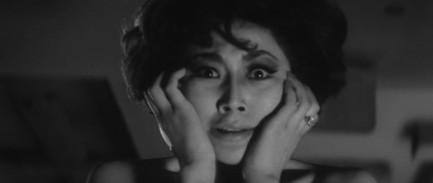| Vintage Pulp | Jun 21 2020 |

If you're going to have a fantasy make it a doozy.
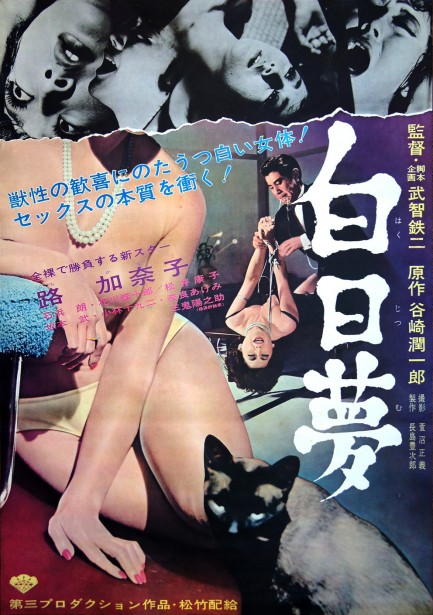
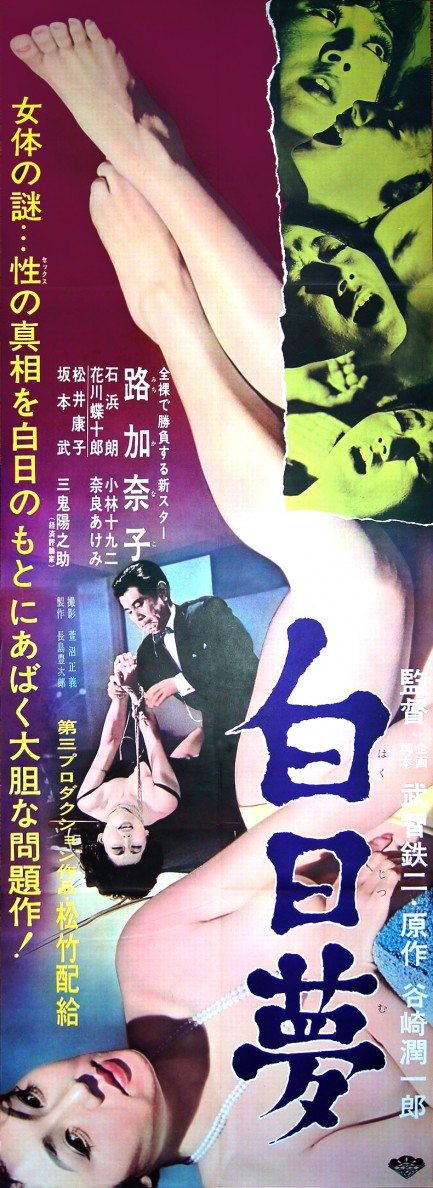
We have two exceptionally beautiful Japanese posters today. These were made for Hakujitsumu, known in English as Daydream. That's an unusually concise Japanese title, but this won't be a concise post. The movie is loosely based on a 1926 novel by Junichir Tanizaki, and was one of the first films classified as pinku eiga, as well as one of the first erotic productions to have a big budget and a run in mainstream cinemas. It also played outside Japan, with a screening at the 1964 Venice Festival and a release in Stateside cinemas. And because of its success, director Tetsuji Takechi remade the film in hardcore style, not once, but twice, in 1981 and 1987, both times starring Kyōko Aizome, who we've talked about before.
The premise of this is fascinating. Akira Ishihama meets Kanako Michi in their dentist's waiting room. Later, as both of them are receiving anesthesia, Ishihama looks over and sees—because apparently Japanese dentistry meant placing two patients into the same room—the dentist and a nurse strip Michi, then seemingly suck her blood like vampires. Was it an anesthetic dream, or a real occurrence? Ishihama needs to uncover the truth. He goes to a nightclub where Michi sings, sees the dentist approach her and demand that she leave with him. Ishihama follows—or actually sort of teleports after them—and later sees Michi submit to various forms of kinky bondage. But is any of what he's seeing real? The title of the film gives that away, doesn't it?
We wonder if Hakujitsumu used the plot device of fantasy because it softened the idea of the bondage and weirdness Michi goes through. Well, all that would soon become routine in Japanese cinema. In addition this was the first Japanese film to show an actress fully naked—which happens for extended periods. Most write-ups say there's even pubic hair shown, but we'll admit we blinked and missed it if that was the case. What we didn't miss was what a clear precursor to the pinku genre of roman porno Hakujitsumu is. Here those elements seem novel; by the 1970s, they wouldn't be, and as a result filmmakers were by then pushing the envelope with violence, water sports, and enemas. That envelope could have stayed flat, as far as we're concerned. Hakujitsumu premiered in Japan today in 1964.
